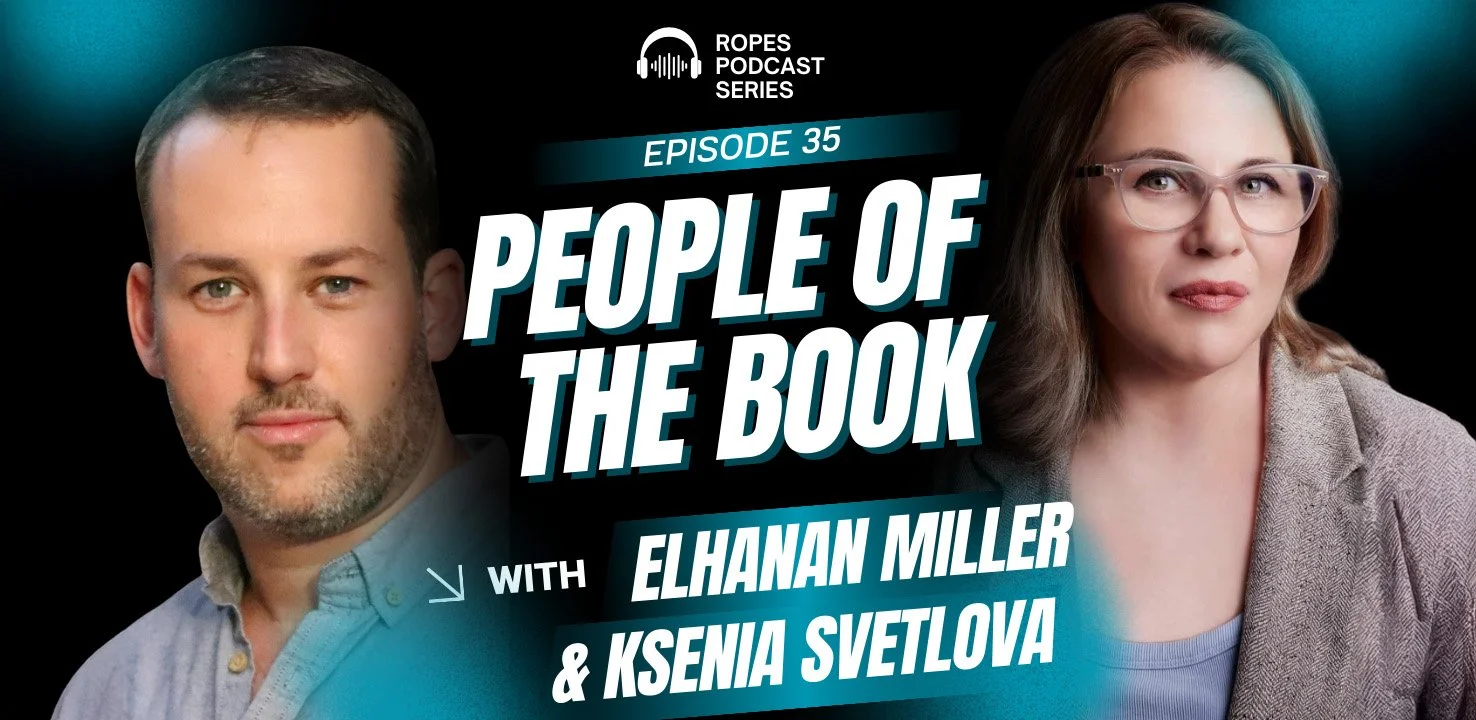People of the Book: Bridging Faith and Language in theMiddle East (Podcast)
Rethinking narratives, identities, and possibilities — a conversation with Rabbi Elhanan Miller
At ROPES (Regional Organization for Peace, Economics, and Security), our mission is rooted in creating thoughtful, sustained dialogue around the challenges — and the opportunities — facing our region. We’re excited to launch the ROPES blog alongside our latest podcast episode, which perfectly embodies that mission: an interview between journalist and ROPES fellow Ksenia Svetlova and Rabbi Elhanan Miller, creator of the Arabic-language project People of the Book.
In a region where politics and identity are often tightly entangled, Miller’s work offers something rare: religious and cultural explanation that crosses language, faith, and political barriers. A fluent Arabic speaker, he creates videos and writes content that explains Judaism to Arabic-speaking audiences in their own language, building bridges in a space that has long lacked neutral, accessible information.
“I think Israel is coming of age and is realizing the importance of even Arabic as a Jewish language”
He sees his work as not just educational, but transformative — opening up space for understanding where there has been mistrust and silence. “If Israelis see themselves more and more as part of the region,” he adds, “then I think Israelis themselves will understand the importance [of speaking Arabic].”
But this episode isn’t just about religious education — it’s about how religion, politics, identity, and trauma intersect. It touches on the legacy of conflict, the role of media and political systems, and how unprocessed history continues to shape our present.
“There’s a lot of unprocessed trauma,” Miller observes. “There’s a lot of undealt with history.”
Host Ksenia Svetlova, reflecting on the current political climate, adds:
“Nobody wants to involve in politics, but politics is involved in us.”
Their conversation doesn't shy away from hard truths: about the war in Gaza, the tensions between Israel’s security establishment and government, and the lack of clear direction or strategy moving forward.
“When the Chief of Staff is calling up soldiers to a war that he’s publicly stating that he doesn’t believe in — I don’t think we’ve ever been in a situation like this before,” Miller warns. “So I don’t know where we’re going in Gaza.”
Yet through the uncertainty, there’s also hope. A belief that religion, often seen as part of the problem, can also be part of the solution.
“Religion is one of the most potent vehicles of humanization,” Miller says. “When you see the ‘other’ as a person like you, then it becomes harder to kill them... Just as religion can be the problem, I hope it can also be the solution.”
Why This Matters
At ROPES, we believe in fostering dialogue that deepens understanding, not division. This episode exemplifies how cross-cultural, cross-linguistic communication can help reframe not just how we speak to each other — but how we see each other.
We invite you to listen to the full conversation and share your thoughts. As we continue building this blog and expanding our platform, we’ll be exploring more stories like this: stories that challenge assumptions, offer new perspectives, and reflect the complexity — and humanity — of our region.
🎧 Listen to the full episode of "People of the Book" on Spotify or other platforms
📢 Follow us on social media (@ropesorganization)
📰 Subscribe for future blog posts and podcast episodes

